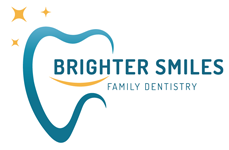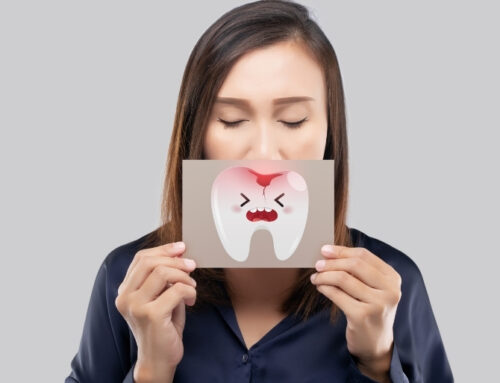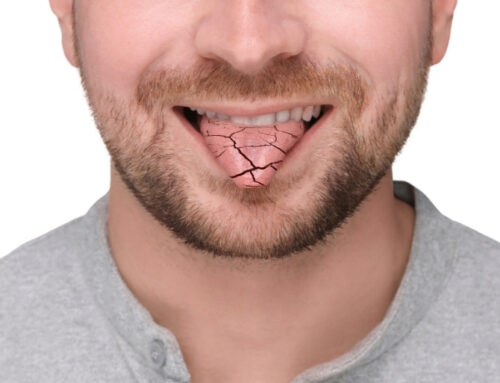As you get older, dental care for seniors becomes crucial—not just for comfort, but for your overall health.
Untreated preblems like tooth decay and gum disease can lead to serious health complications, including heart disease, diabetes issues, and even respiratory problems.
Staying on top of regular checkups and preventive care helps you lower these risks, keeping you healthier in the long run.

Keeping your dental health a priority also means you can enjoy eating a wide choice of foods, supporting better nutrition.
And let’s not forget the confidence boost—a healthy smile has a real impact on mental health, boosting self-esteem and helping you stay socially connected.
Next, we’ll look at some of the specific dental challenges that can come with age—and how knowing what about them can help you protect your smile for years to come.
Common Dental Challenges Faced by Seniors
With age, certain changes in your mouth can make maintaining dental health a bit more challenging. Recognizing these changes early on can help you manage them effectively and prevent further issues.
Aging and Oral Health: What Changes to Expect
You might notice your gums receding slightly, which can make teeth more sensitive and more pone to wear.
Teeth can also become more brittle with age, increasing the chances of chips or cracks.
Additionally, many seniors experience a decrease in saliva production, which impacts how well the mouth naturally clears away bacteria and food particles.
Common Conditions: Dry Mouth, Tooth Decay, and Gum Disease
Certain conditions become more frequent with age:
By recognizing these challenges, you can make small, preventive changes that will have a big impact on your dental health.
Understanding Medicare and Dental Coverage Options
Navigating Medicare can feel overwhelming, especially when it comes to dental care. Here’s what you need to know to make the most of your coverage and explore other options that may help.
Does Medicare Cover Dental Care? What to Know
With the Original Medicare (Parts A and B), regular dental care are typically not covered including cleanings, fillings, or dentures.
However, some Medicare Advantage plans (Part C) offer additional benefits, which may include dental coverage for basic preventive care, like cleanings and exams.
If you’re considering a Medicare Advantage plan, look closely at what each option covers.
Many plans only provide partial coverage or set annual limits on dental expenses, so understanding the fine print is key.
Medicare Supplements and Other Plans for Dental Care
Since Original Medicare doesn’t cover routine dental services, some people choose a Medicare Supplement plan (Medigap) or a separate dental plan.
Medigap plans typically cover costs like copays and deductibles for medical care but usually exclude dental.
To fill this gap, many seniors opt for standalone dental insurance or discount dental plans, which can reduce out-of-pocket costs for routine care.
Comparing options based on your dental needs can help you find the best plan.
Some plans emphasize preventive services, while others offer more coverage for major treatments, so it’s worth taking the time to choose a plan that works well with your budget and oral health priorities.
Affordable Dental Care Options for Seniors
If dental coverage is limited or out of reach, there are still several ways to access affordable care. Here are some resources that can help reduce out-of-pocket costs.
Exploring Senior Discounts and Cash Pay Incentives
Many dental practices offer discounts specifically for seniors or incentives for cash payments.
When booking an appointment, ask if they provide any senior discounts, which can sometimes reduce fees by a significant amount.
Cash pay incentives are another option to explore—paying in cash upfront may result in lower rates compared to billing insurance.
It’s a simple way to cut costs if you’re budgeting for routine care.
Dental and Hygiene Schools for Discounted Services
Dental and hygiene schools often provide services at reduced rates to help students gain hands-on experience under professional supervision.
These programs offer cleanings, exams, fillings, and sometimes even more advanced care for much lower prices than traditional practices.
To find a school near you, check with local colleges or search online for accredited programs in your area.
Financial Assistance Programs and Nonprofit Support
Several nonprofits and community organizations offer assistance with dental care for seniors.
Programs like Dental Lifeline Network and United Way can connect you with dentists who provide low-cost or free services to seniors in need.
Additionally, some states offer programs specifically aimed at making dental care affordable for older adults, so it’s worth checking local resources or talking to your healthcare provider about options.
These resources can help you in making dental care more accessible, so you don’t have to compromise on maintaining your oral health.
Alternative Insurance and Payment Plans for Senior Dental Care
If you’re exploring additional options beyond traditional Medicare and looking for ways to manage dental expenses, consider alternative insurance and flexible payment tools designed to help seniors cover out-of-pocket costs.
Independent Dental Insurance Plans: What to Look For
Independent dental insurance plans can offer seniors coverage tailored to their needs. When choosing a plan, look for one that covers routine exams, cleanings, and, if needed, major procedures like crowns or dentures.
Some plans may have waiting periods, so check if immediate coverage is essential for your current needs.
Comparing plans based on monthly premiums, annual maximums, and out-of-pocket limits can also help you find a plan that aligns with your budget.
Reading through plan details to identify any exclusions or limitations is key—some plans may not cover pre-existing conditions or limit the number of visits covered per year.
With a clear picture of what’s included, you can select a plan that gives you the best balance of affordability and coverage.
Flexible Spending Accounts: How to Use Them for Dental Care
Flexible Spending Accounts (FSAs) can also help with dental costs, allowing you to set aside pre-tax dollars to cover eligible dental and medical expenses.
If you already have an FSA, you can use these funds for everything from cleanings to fillings and even some procedures not fully covered by insurance.
Just keep in mind that FSA funds typically expire at the end of the year, so planning your dental appointments ahead can ensure you make the most of your balance.
For those who qualify, Health Savings Accounts (HSAs) work similarly and offer flexibility for healthcare expenses, including dental care. Both options provide a practical way to manage out-of-pocket costs while reducing your taxable income.
Preventive Dental Care: Why Regular Checkups Matter
While coverage and payment options make dental care affordable, regular checkups and preventive care are essential to keep your gums and teeth strong and healthy as you age.
Benefits of Preventive Care for Seniors
Preventive dental care helps catch minor issues before they become costly problems.
Routine cleanings, for example, remove plaque buildup that can eventually result to tooth decay and gum disease, two conditions more common in older adults.
By addressing these issues early, you can often avoid more intensive treatments like root canals or extractions.
Beyond preventing discomfort, routine checkups help support overall health.
Studies have shown links between gum health and conditions like diabetes and heart disease, so keeping your gums healthy may benefit your overall well-being.
Consistent preventive care also helps you maintain a healthy smile, which can boost confidence and allow you to enjoy a wider choice of foods.
How to Prepare for Dental Visits and What to Expect
Preparing for a dental appointment can make the process smoother and help you get the most from your visit.
Bring a list of any medications you’re taking, as some medications can impact oral health.
It’s also helpful to mention any recent changes in your health or new symptoms, such as dry mouth or increased sensitivity, so your dentist can tailor their recommendations.
During your checkup, expect a thorough cleaning and an examination of your teeth and gums.
Many offices offer fluoride treatments or sealants that strengthen your teeth, and your dentist may discuss personalized care tips to support your oral health between visits.
By attending regular checkups, you’re taking proactive steps toward maintaining a healthy smile.
Tips for Maintaining Oral Health at Home
Between checkups, taking a few simple steps at home can help you keep your teeth and gums in top shape. Here are some easy, effective ways to maintain oral health every day.
Daily Oral Hygiene Tips for Seniors
Maintaining a consistent routine is key to oral health.
With a soft-bristle toothbrush, brushing twice a day can help protect sensitive gums and prevent plaque buildup.
Take your time brushing, aiming for at least two minutes, and gently brush along the gumline.
Flossing once a day is equally important—if traditional floss is difficult to handle, try floss picks or a water flosser to make the process easier.
Choosing Senior-Friendly Dental Products
The right tools can make daily care easier and more effective.
For example, electric toothbrushes are a great option if you have limited dexterity, as they can cover more surface area with less effort. Look for a toothbrush with soft bristles and a smaller head, which can be gentler on your gums.
When choosing toothpaste, consider one with fluoride for added protection against decay, as well as a formula for sensitive teeth if needed.
With these simple steps and products, you can take control of your oral health at home and keep your smile bright between dental visits.
Accessible, Affordable Dental Care at Brighter Smiles
At Brighter Smiles, we make it easy for seniors to access quality dental care that fits their needs and budget. Our team is here to help you understand your insurance benefits and explore payment options that work for you, so you can feel confident about prioritizing your dental health.
Insurance and Payment Options
We accept a number of insurance plans, including PPO, Premier, and Medicare dental insurance, making it straightforward to use your benefits.
Our team is happy to walk you through all the details of your coverage and answer any questions you may have about how your insurance applies to our services.
Flexible Payment Options
For added flexibility, Brighter Smiles accepts payments by cash, check, and credit card.
For established patients, we also offer convenient monthly payment plans through DocPay, allowing you to manage dental expenses in a way that fits your budget.
With these options, we’re committed to making dental care accessible and affordable.
Contact Us to Learn More
If you’d like to learn more about how Brighter Smiles can support your dental care needs, don’t hesitate to reach out.
Our team is ready to help you explore insurance and payment options that make quality dental care achievable.

About the Author
Brighter Smiles Family Dentistry, led by Dr. Melani Fulton, upholds a legacy of exceptional dental care in West Des Moines, IA. Dr. Fulton, a University of Iowa College of Dentistry alumna, specializes in family dentistry and orthodontics. She succeeded Dr. Dan Todd in 2021, continuing a tradition of patient-centered, high-quality dentistry. Committed to gentle, modern treatments, Dr. Fulton’s approach is deeply rooted in community values, ensuring every patient feels like family at Brighter Smiles.




